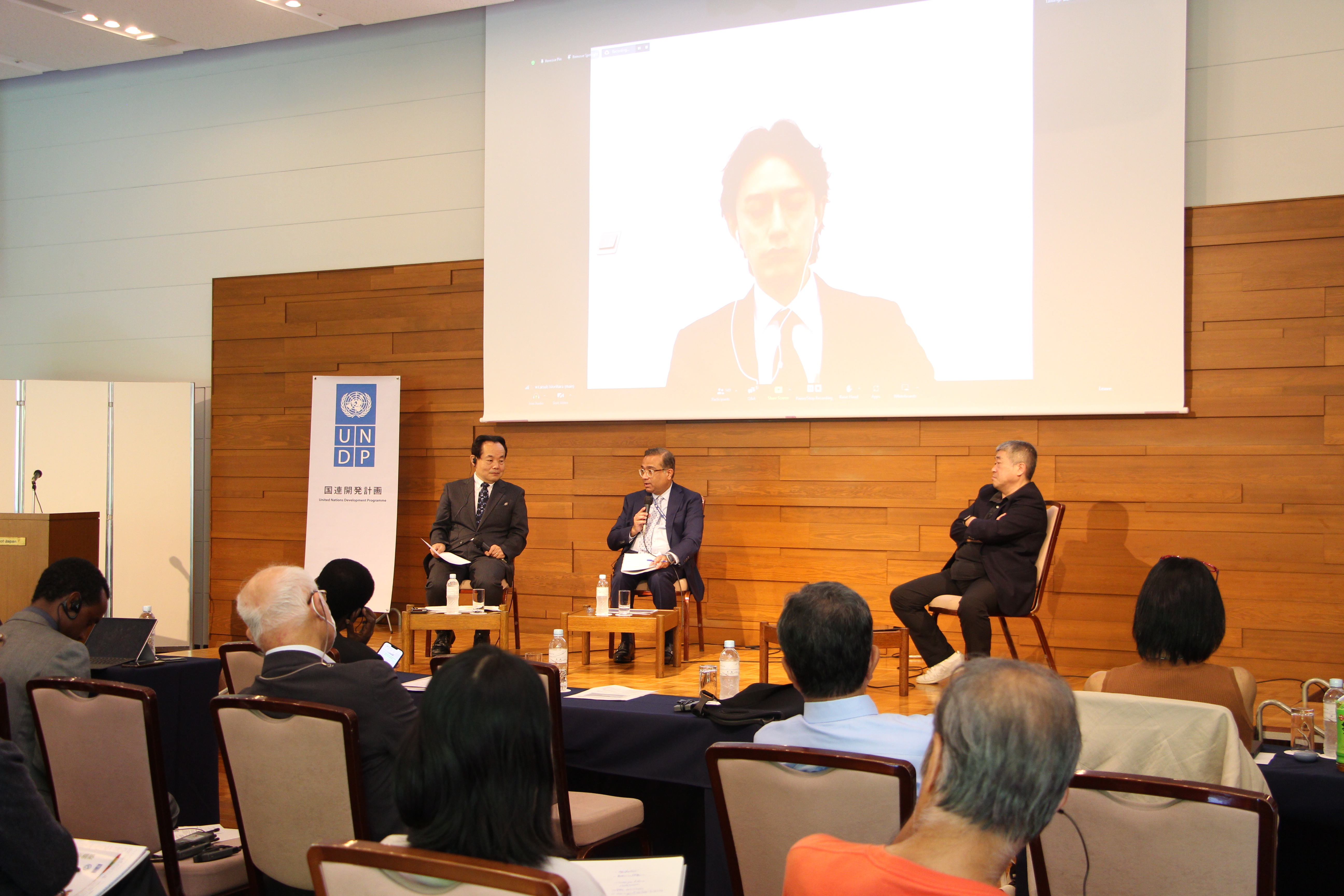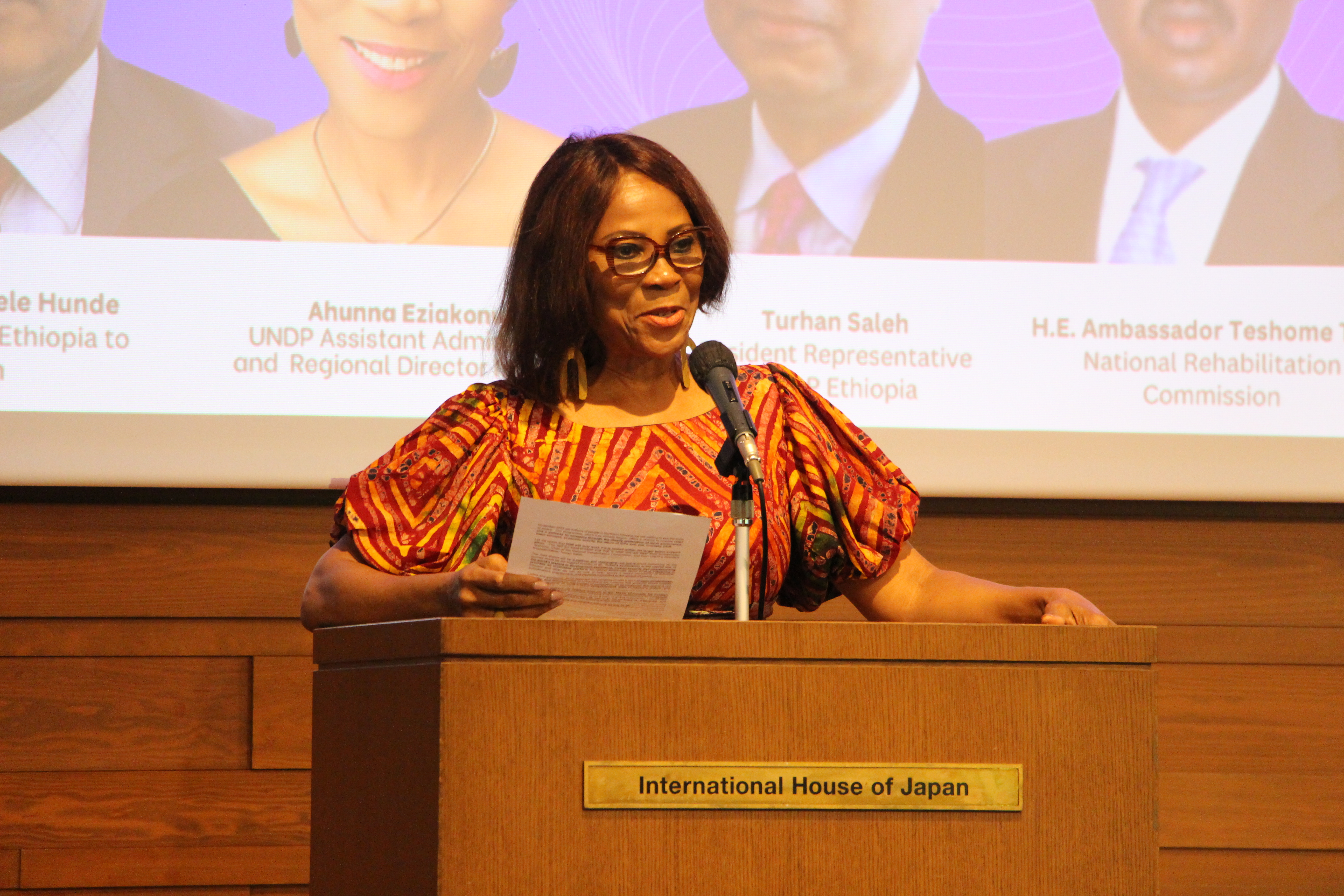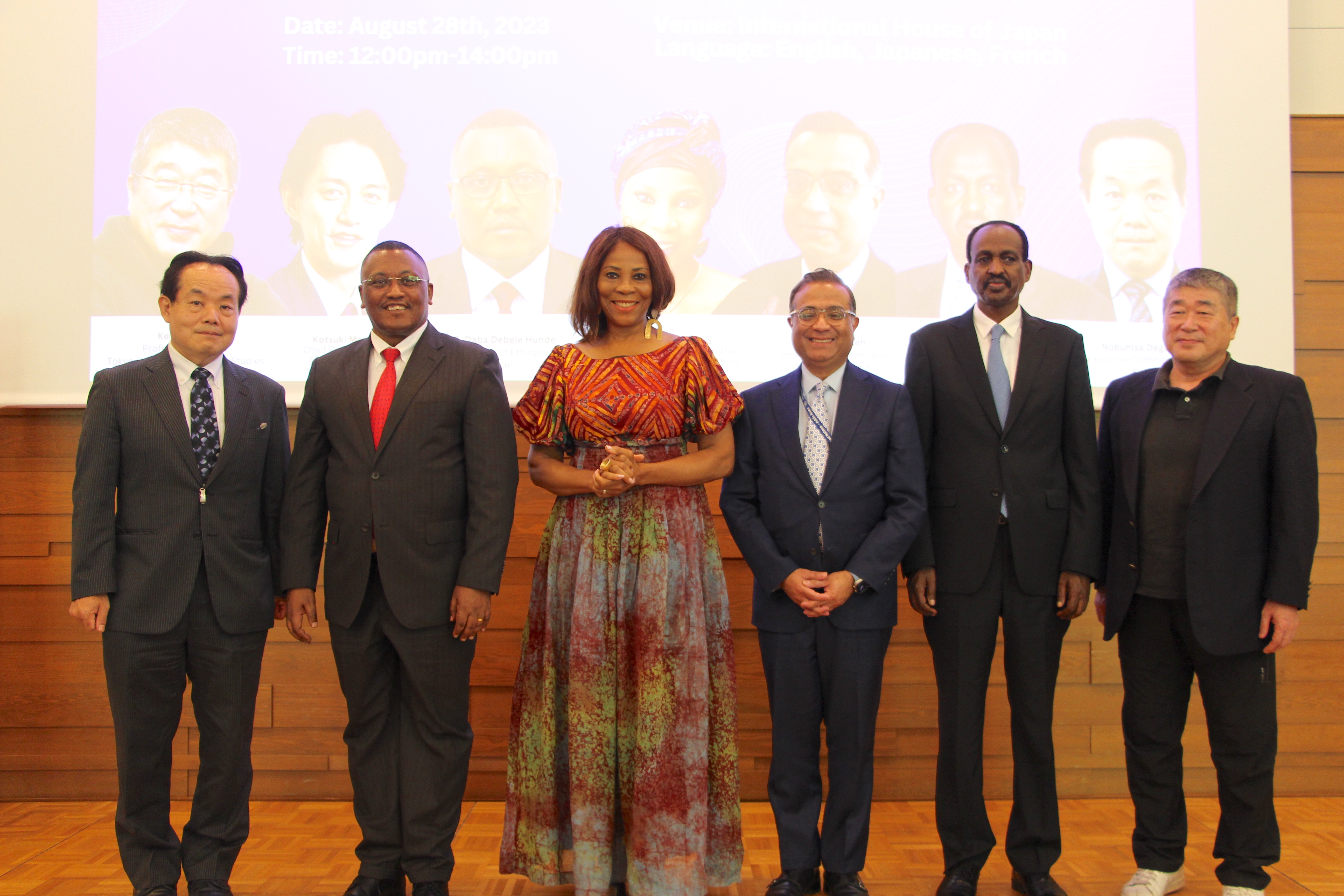In August 2023, the United Nations Development Programme (UNDP) and the Tokyo University of Foreign Studies co-hosted a symposium on peace support and DDR in Ethiopia, with a focus on the importance of DDR.
Ethiopia's Path to Peace: A Symposium Discussed Disarmament and Reintegration Efforts
November 5, 2023

Following almost two years of intense conflict, an Agreement for Lasting Peace through a Permanent Cessation of Hostilities (COHA) was signed between the Government of the Federal Democratic Republic of Ethiopia and the Tigray People’s Liberation Front in Pretoria on 2 November 2022. The agreement paved the way for the restoration of peace, security, and stability in the Tigray Region and beyond, in conflict-impacted areas of Afar and Amhara regions.
Given this context, the Symposium on Peace Support and DDR in Ethiopia: Delivering an Early Peace Dividend - 'Make-or-Break'? was co-organized by the United Nations Development Programme (UNDP) and the Tokyo University of Foreign Studies in August 2023. This event served as a platform for discussing the pressing need for Disarmament, Demobilization, Reintegration (DDR) programs and for drawing insights from past DDR initiatives in Ethiopia and the surrounding region.
At the beginning of the symposium, Ahunna Eziakonwa, Assistant Secretary-General and Regional Director for Africa at UNDP, emphasized the global commitment to peace and development in Ethiopia. She praised Japan's longstanding support for peace and stability in Africa. She also highlighted the importance of peace for social, economic, and political development and noted that stability in Ethiopia, with its rich culture and history, has a ripple effect on the entire Horn of Africa region and is essential for global peace.
In remarks by H.E. Daba Debele Hunde, Ambassador of Ethiopia to Japan, the role of Japan as a vital development partner was highlighted, especially in economic cooperation. "Collaboration among partners and stakeholders is essential for realizing the DDR program. We have confidence that collective efforts can achieve more."
The role of TICAD as a valuable platform for fostering meaningful collaboration and partnership between Japan and various African countries was underlined by H.E. Teshome Toga, Commissioner of the National Rehabilitation Commission. He explained Ethiopia's DDR as follows:
“Provision of an early peace dividend to ex-combatants and affected communities is vital for achieving lasting peace and will help them return to mainstream society. Ethiopia’s national reintegration program features economic support, training for income improvement, and psychological counseling, among other components. With Japan playing a part, Ethiopia has the potential to become a successful case of DDR on the global stage."

Eziakonwa delivering her keynote speech during the event
Turhan Saleh, Resident Representative, UNDP Ethiopia, raised a crucial question: “why does peace matter?” He explained that Ethiopia serves as the anchor of stability in the Horn of Africa. “The country has already seen structural, economic, political, demographic, and environmental transitions. UNDP's commitment is shifting from saving lives to securing them long-term. Ethiopia could become a success story for the international community to learn about future DDR opportunities,” stressed Saleh.
In the subsequent panel discussion moderated by Mr. Nobuhisa Degawa, Executive Commentator at NHK, who had reported on the Tigray region conflict, diverse perspectives on DDR in Ethiopia were shared and discussed.
Dr. Kenji Isezaki, Professor Emeritus from Tokyo University of Foreign Studies, shared his own experiences with DDR in various conflict zones where UNDP was involved, including Afghanistan, Sierra Leone, East Timor, and Mindanao, Philippines. He expressed concern about the proposed Ethiopian DDR, particularly its separation from Security Sector Reform (SSR) and stressed the need for a balance between peace and justice, recognizing that peace dividends may not always align with the pursuit of justice.
Dr. Katsuki Morihara, Chief Representative of the JICA Ethiopia Office, emphasized the crucial role of international actors in sustaining long-term peace and stability. He provided examples from JICA's operations in South Sudan, highlighting that as long as 10 years were required to complete the construction of the bridge in Juba. This bridge, now called the 'Freedom Bridge' by local residents, serves as a symbol of the enduring significance of peace in the country. The project, financed by JICA's grant aid, faced numerous interruptions associated with the recurrence of security incidents.
Saleh highlighted that many ex-combatants are young, and an estimated 20% of them in Tigray are female. He raised the issue of sexual and gender-based violence and emphasized the need to help ex-combatants return to schools. Job generation is critical, he argued, given that many young and unemployed men eventually become combatants.
Regarding the success of DDR initiatives, Dr. Isezaki highlighted the challenge of defining success in DDR, given its diverse outcomes, making a simple success-fail classification difficult. He provided the example of Sierra Leone, where state-building failed despite the success in the reintegration of ex-combatants and emphasized that all stakeholders in the process need to engage, and that DDR should not be addressed alone but together with Security Sector Reform (SSR).
Finally, in terms of investment in Ethiopia and business opportunities after DDR efforts, Dr. Morihara highlighted the increasing interest of Japanese companies looking to start new businesses in Ethiopia. He stated, "As success stories of businesses from Ethiopia increase, I believe there will be even more attention from the Japanese private sector on Ethiopia in the future."

Mr. Nobuhisa Degawa, H.E. Daba Debele Hunde, Ahunna Eziakonwa, Turhan Saleh, H.E. Teshome Toga, Dr. Kenji Isezaki

 Locations
Locations


